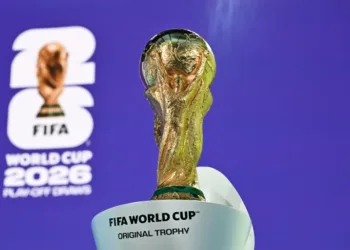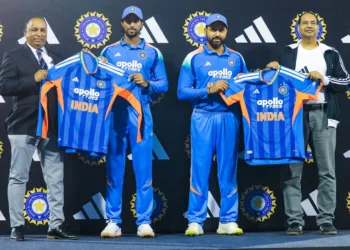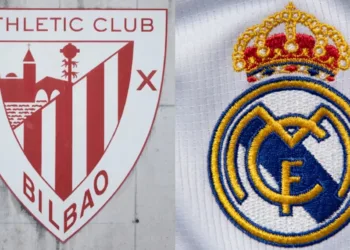Victory came with controversy. Elena Rybakina’s powerful WTA Finals triumph in Riyadh turned awkward when she refused to stand beside WTA CEO Portia Archer during the trophy presentation—a silent protest that resonated throughout tennis.
Tennis icons Andy Roddick and Jon Wertheim tackled the drama on the “Served” podcast, revealing just how precarious this player-organization relationship has become.
Table of Contents
WTA Gesture That Spoke Volumes
After dominating the field to claim her first WTA Finals crown, Rybakina pointedly avoided posing with Archer alongside runner-up Aryna Sabalenka. The snub stemmed from deep frustration over the WTA’s treatment of her coach Stefano Vukov, who faced suspension before being cleared on appeal.

The Controversy Timeline
| Date | Event |
|---|---|
| Early 2024 | Vukov provisionally suspended by WTA |
| June 2024 | One-year ban officially imposed |
| August 2025 | Ban lifted after successful appeal |
| November 2025 | Rybakina refuses to pose with WTA CEO |
| Post-Finals | Rybakina cites communication breakdown |
Expert Analysis: Two Perspectives
Former world number one Roddick acknowledged the lingering tension. “There’s still some feelings about how everything went down and the fact that they suspended her coach,” he said, recognizing the emotional weight Rybakina carries. The 2003 US Open champion diplomatically avoided choosing sides but understood her grievance.
Sports Illustrated analyst Wertheim took a firmer stance defending the WTA. “I don’t think the WTA has any apologizing to do. There is a code of conduct. They determined her coach violated that code,” he stated unequivocally.
But Wertheim’s most striking observation addressed what didn’t happen. “This situation could have gone a lot darker. We should be happy for everyone involved,” he emphasized—suggesting potential scenarios far worse than a symbolic snub.
Reading Between the Lines
Wertheim highlighted something crucial about Rybakina’s typically reserved nature. “This is not a player who’s particularly expressive, so that gesture, basically not acknowledging the WTA, was actually a rare glimpse into her personality,” he noted.
For someone who barely celebrates match points, this public display of defiance carried enormous weight. It revealed frustration bubbling beneath her stoic exterior throughout months of uncertainty about her coaching situation.

The Backlash
Pam Shriver, 18-time Grand Slam doubles champion, criticized Rybakina sharply on social media. She pointed to the irony of winning record prize money while “dissing” the CEO who works to protect player welfare.
Rybakina later clarified her position, stating the WTA had multiple opportunities to communicate during Vukov’s investigation but failed to engage meaningfully. Her issue appears less about the investigation itself and more about feeling excluded from the process.
Championship Performance Amid Turmoil
Despite the drama, Rybakina’s on-court dominance was undeniable. She steamrolled through the WTA Finals with a perfect 5-0 record, collecting $5.235 million—the largest single-tournament prize in women’s tennis history.
Her straight-sets dismantling of Sabalenka in the final showcased why many consider her the most dangerous player on tour when focused. The victory marked her eighth win in 14 career meetings against world number ones.
What “Darker” Could Mean
Wertheim’s ominous phrase raises questions. Could the situation have escalated to:
- Rybakina boycotting WTA events
- Legal action against the organization
- Public feuds damaging both reputations
- Other players taking sides in the dispute
That none of these materialized suggests both parties showed restraint despite genuine grievances. The symbolic protest may actually represent the most measured response Rybakina could muster while still making her point.
For more updates on professional tennis controversies and WTA tour developments, stay connected with our coverage.
Looking Forward
With Vukov back in her corner and confidence restored through championship success, Rybakina enters 2026 as a legitimate Grand Slam threat. Whether she reconciles with the WTA or maintains this cold war will significantly impact her career trajectory.
Frequently Asked Questions
Q: Why did Elena Rybakina snub WTA CEO Portia Archer at the trophy ceremony?
A: Rybakina was protesting the WTA’s handling of her coach Stefano Vukov’s suspension and subsequent ban, which was later overturned on appeal. She claimed the organization failed to communicate with her properly throughout the investigation process.
Q: What did Jon Wertheim mean by saying the situation “could’ve gone a lot darker”?
A: Wertheim suggested the conflict between Rybakina and the WTA could have escalated into more serious consequences like boycotts, legal battles, or public feuds that would damage women’s tennis. The trophy ceremony snub, while controversial, represents a relatively contained form of protest.








